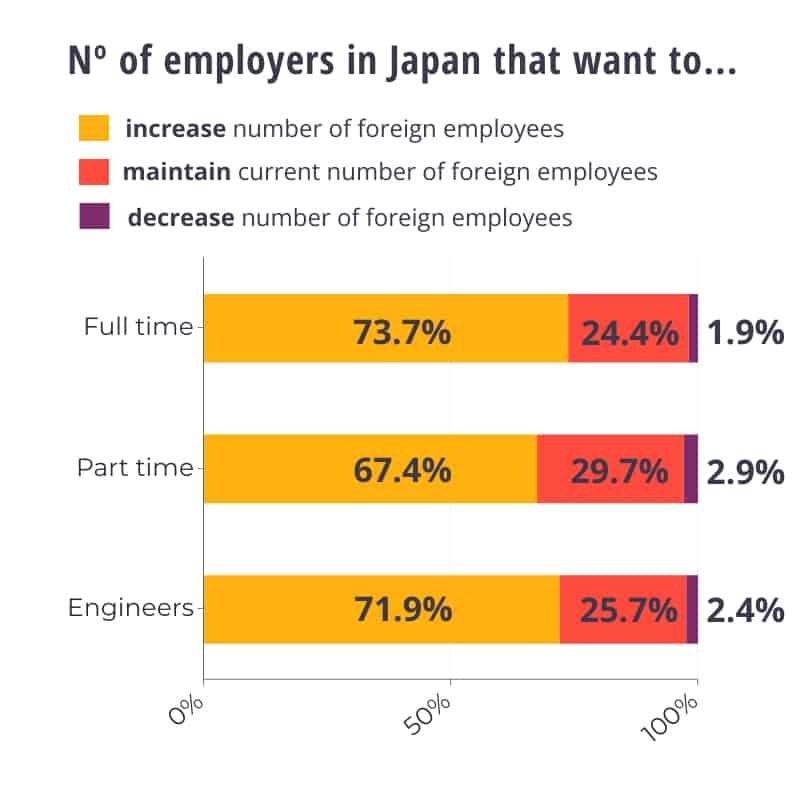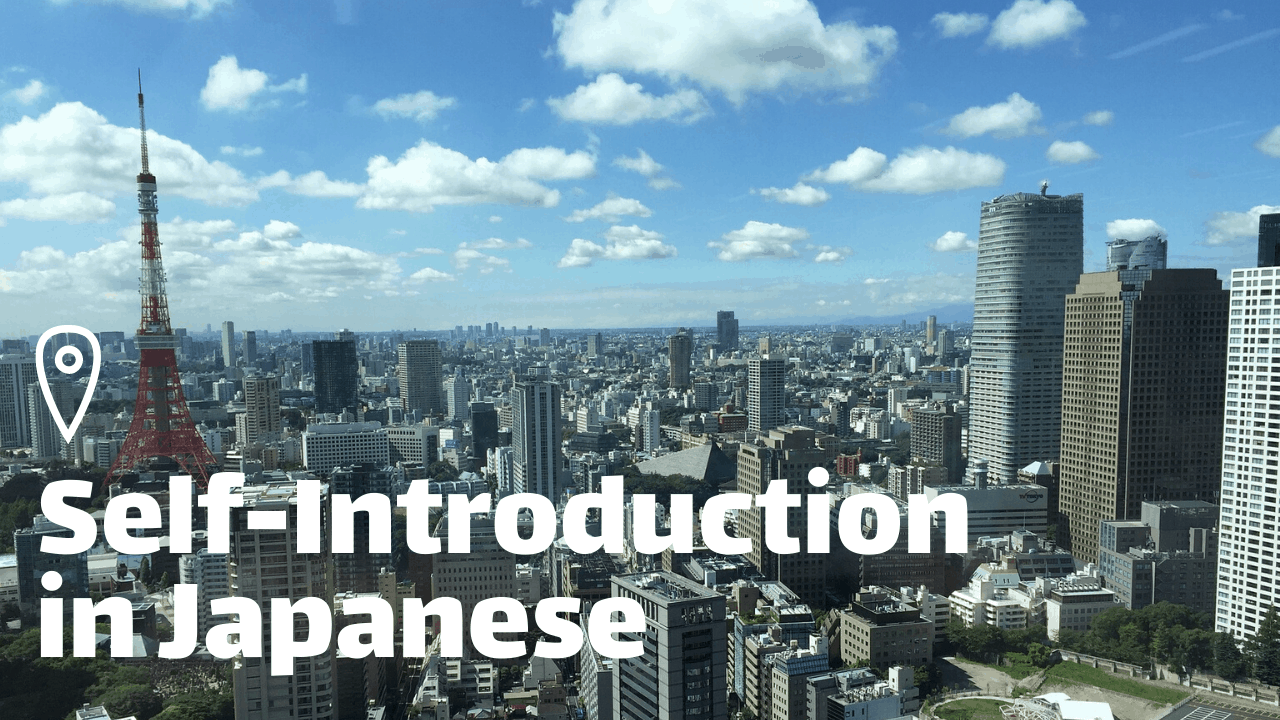What are the real chances of getting a job in Japan as a foreigner? How difficult is it to find one? If you are thinking about working in Japan in the future, but you are not sure if it’s even possible to be a part of traditional and strict Japanese companies as a foreigner, this article is exactly for you. We will explain the trend of hiring foreigners in Japan, the skills required to get a job, and factors affecting the job-hunting process in Japan. Have you ever wondered if one’s personality may also be crucial? Stay tuned and read on!
The trend of hiring foreigners in Japan
You might think of Japanese employers as strict and not very willing to hire foreigners, but this is actually not how it really is nowadays! On the graph below you can check how much employees are willing to increase the number of foreign employees in their companies.
 The trend of hiring foreigners in Japan, 2019 (source)
The trend of hiring foreigners in Japan, 2019 (source)
As you can see, for each category around 7 out of 10 employees want to increase the number of foreign workers in their companies. Surprising, isn’t it? Almost all other answers were about maintaining the current number of employees, whereas only a very small percentage of employers said they would decrease the number of foreign employees. This shows that the trend is going in the right direction and getting a job in Japan is becoming easier than ever before.
 The reasons why employers want to increase the employment of foreigners as full-time employees are: creativity (thinking outside the box, while Japanese tend to stick to patterns), overseas business development, language skills, and special qualifications.
The reasons why employers want to increase the employment of foreigners as full-time employees are: creativity (thinking outside the box, while Japanese tend to stick to patterns), overseas business development, language skills, and special qualifications.
Next, the trend of hiring foreigners who work part-time is mostly because of: labor shortage, protecting young workers, reducing hiring costs, and helping foreigners traveling to Japan.
Last but not least, the reasons for hiring technical intern trainees are also labor shortage, protecting young workforce, developing overseas business, and human resources cost reduction.
There are more and more opportunities waiting ahead, so it may be great timing to give it a try!
Which skills are required?
It’s common to think that the Japanese language level is the most important factor when it comes to applying for a job in Japan. Here comes the truth: it is NOT the number one! It is essential, but one’s motivation is the most valuable asset, especially in recruiting for full-time positions.

Essential factors in the recruitment of foreigners in Japan (source)
In this chart, we can see that there might be some differences between full-time, part-time, or engineer positions, but the top 3 important points, regardless of the type of employment, are one’s motivation, Japanese skills, and personality. For part-time workers, age and physical strength are also highly valued.
Motivation
Japanese people highly appreciate one’s passion and motivation, along with their dedication to work. It is crucial to show a great amount of energy and passion during your interview, as the Japanese care about this more than you would think. This is also why the first impression is very important, as it says a lot about your passion, willpower, and your optimism as a person.

Do you want to know more about Japanese culture and business etiquette? Check out our YouTube channel with many useful videos! 🔥
Japanese language skill
It depends on the job type, but it is a fact that Japanese language skill is required by around 50% of companies. The results of research on companies planning to hire foreign students show that Japanese language level is the second most important factor taken into consideration, following general communication ability and one’s motivation. If you’re still practicing your Japanese skills, don’t worry, as it is not the no. 1 factor. Although, another thing is that companies want foreign employees to be able to speak better Japanese after entering the company than during the interview. They expect you to practice a lot and improve your skills.
That being said, Japanese language skill is relatively important. It’s not always a must, but it is absolutely a plus point.
Personality
In Japan, a country where communication and teamwork are highly demanded, personality is often regarded as one of the most important elements, even more than expertise and skills. Your good intentions, positive vibe, and lots of smiling will leave a great impression of you. Also, remember that in Japan people think and care a lot about the community and people surrounding them, so be sure to not be focused only on your goals, but keep the perspective wide. Caring about others and making them happy is a virtue highly appreciated by the Japanese.
 Another thing is that you should always be as polite as possible, especially in business situations. It’s something you get used to, but make sure to do your research about the Japanese honorific language, the right way and timing to bow, etc. The key is to be respectful and kind, regardless of the situation.
Another thing is that you should always be as polite as possible, especially in business situations. It’s something you get used to, but make sure to do your research about the Japanese honorific language, the right way and timing to bow, etc. The key is to be respectful and kind, regardless of the situation.
Want to master Japanese business phrases? Click on the link below 👇
Visa
Holding a visa is a huge plus for Japanese employers. While some companies are willing to help to get you the right working visa, most are not. In most cases, the first question that an interviewer will ask is what kind of visa you have and he/she can immediately finish the interview before anything else due to this reason.
 In Japan, a working visa doesn’t automatically mean you can work in any industry or any position. For example, if you have an engineer visa, it limits you from working as a teacher, public worker, or any work that is not related to technology.
In Japan, a working visa doesn’t automatically mean you can work in any industry or any position. For example, if you have an engineer visa, it limits you from working as a teacher, public worker, or any work that is not related to technology.
Summary
As you could see, several different factors will affect your job hunting in Japan, although you can work on most of them to get your dream job in the near future. With the trend of hiring more foreigners and being more open to international English speaking environment, finding a job in Japan is definitely becoming easier than before. Good luck on your journey!






















